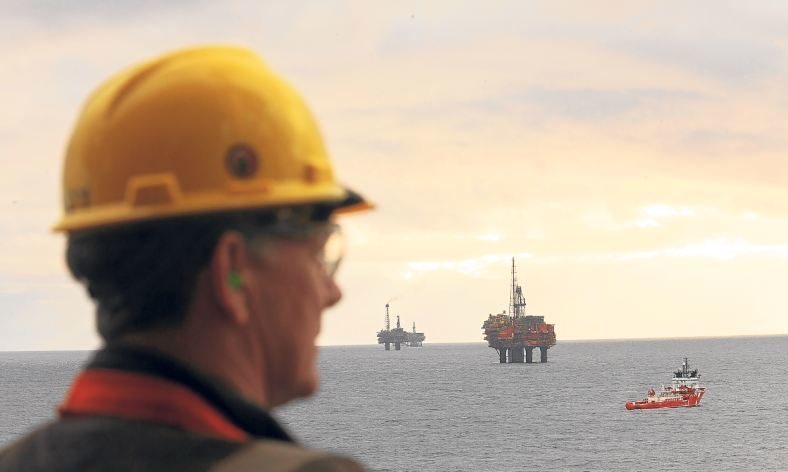
The UK Government last night refuted claims it has made a decision on whether to back Shell’s plans to leave large parts of three oil and gas platforms on the seabed.
Shell submitted plans in 2017 seeking permission to leave the giant legs of three of its four Brent platforms and some other infrastructure in the North Sea.
It has been reported that the Offshore Petroleum Regulator for Environment and Decommissioning (Opred) has given its support for Shell’s proposal, despite concerns over the marine environment.
However, a government spokeswoman last night said a “decision has not yet been made” on whether to back the plans.
Under rules set out by Ospar, a pan-European body to protect the marine environment, installations must be removed in their entirety once they reach the end of their production cycle.
Shell has been seeking an exemption to this, arguing the safety risks associated with trying to remove the concrete structures for the Brent Bravo, Charlie and Delta platforms outweigh the “minimal environmental benefit”.
Environmental groups such as Friends of the Earth, Greenpeace, WWF Scotland and the Scottish Wildlife Trust have previously rejected the plans, arguing they breach Ospar rules.
If the UK government gives its approval, permission must then be granted by Ospar for the decom plan.
However, it is also reported that the German government, a member of the body, has written to UK environment secretary Michael Gove highlighting concerns with the plan.
A BEIS spokeswoman said: “Shell’s decommissioning proposals are available publicly on a dedicated website.
“Decommissioning proposals are always considered on a case-by-case basis and only approved following appropriate consultation with stakeholders.”
The Brent field lies 115miles north-east of Shetland.
A Shell spokeswoman said: “Our recommendations are the result of 10 years of research, involving more than 300 scientific and technical studies.
“We established an independent group of scientific experts to review the findings and ensure all feasible decommissioning options were investigated thoroughly.
“We submitted our recommendations following extensive stakeholder engagement and only when we were confident that they were safe, technically achievable, and environmentally and socially sound”.
Recommended for you

